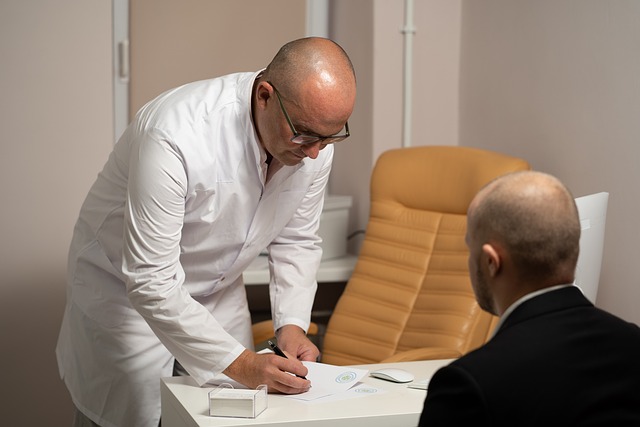Seven risk factors for guys with early-onset colorectal cancer have been found in a recent study.
While colorectal cancer, or cancer that begins in the colon or rectum, has been on the decline in older adults since 2011, in younger adults, the disease has been increasing at a rate of 2% annually. Although colorectal cancer in males is more common than in women, the number of cases of early-onset colorectal cancer in both sexes has been rising over time.
Although the specific cause is unknown, knowledge of the risk factors for this younger demographic may help, according to Anton Bilchik, MD, PhD, director of the Gastrointestinal and Hepatobiliary Program at Saint John’s Cancer Institute in Santa Monica, California, and surgical oncologist, who spoke with Health.
According to main study author Thomas Imperiale, MD, a research scientist at the Regenstrief Institute and a professor of gastroenterology and hepatology at Indiana University School of Medicine, the study’s findings may also persuade those with the associated risk factors to get checked for colorectal cancer.
Table of Contents
Men’s Early-Onset Colorectal Cancer Risk Factors

Researchers used a veterans database to identify 600 individuals with non-hereditary colon or rectal cancer and 2,400 control patients without colorectal cancer for the study, which was published in the journal Cancer Prevention Research on June 6. Every male participant in the study was between the ages of 35 and 49.
Seven factors that may raise the chance of receiving a colon cancer diagnosis were identified by researchers after looking over the veterans’ medical records:
- Being older than average for the 35 to 49 age group
- Not taking aspirin or ibuprofen, or other non-steroidal anti-inflammatory medicines (NSAIDs), on a regular basis
- Not consistently utilizing statins, which are drugs typically used to lessen cholesterol
- Drinking alcohol
- Having a first or second degree relative with colorectal cancer
- Having other health conditions
- A service-connection/copay variable (a measure of socio-economic status)
Having an immediate family member with colorectal cancer, drinking alcohol, and becoming older are all recognized risk factors for the disease. However, some are more unexpected, like not taking statins or NSAIDs on a daily basis.
While regular use of these treatments may influence the risk of colorectal cancer, the researchers did not investigate this possibility. However, Paul Oberstein, MD, assistant director of the Pancreatic Cancer Center at NYU Langone Perlmutter Cancer Center, provided some thoughts.
According to Oberstein, Health, “NSAIDS are anti-inflammatory drugs, and prior research appears to indicate that you can prevent inflammation in order to prevent the formation of polyps and potentially even cancer.” The “magnitude of benefit” they conferred surprised him, he continued, but he wasn’t startled that taking them could reduce the chance of colorectal cancer.
Oberstein stated that while study is still being done, prior data suggests that taking statins may reduce the incidence of colon cancer.
Based on the study, “I definitely wouldn’t advise going out and using those medications,” he declared. “They might increase your risk of something else while potentially lowering your risk of colon cancer.”
Imperiale claims that veteran-specific medical coding is the variable that determines the service connection co-pay. He stated, “We believe it might serve as a proxy for income level.” “It provided some risk information to our seven-variable model, but its numerical significance for risk prediction was lower than that of the other variables in the model.”
One of the study’s most significant findings, in Oberstein’s opinion, is the connection between alcohol consumption and colorectal cancer that develops early. He declared, “Alcohol is a carcinogen—it raises the risk of cancer.” “However, the study reports a higher degree than what has been previously reported.”
A More Customized Method for Screening for Colorectal Cancer

Although veterans were the focus of this study, Imperiale claimed that non-veterans can also benefit from the findings. “We selected veterans for this study due to the high cancer rate among them, their enrollment in the biggest healthcare system in the nation, and the excellent electronic medical record system of the VA,” the researcher stated. (His group is now completing the analysis for a related study involving female veterans.)
According to Imperiale, he believes that the findings would encourage some individuals to get examined at the advised age of 45. That is five years younger than the 2021 suggestion made by the U.S. Preventive Services Task Force.
A colonoscopy is a screening technique in which a physician uses a long tube called a colonoscope to check the colon and rectum for abnormalities. Other screening procedures include stool tests that can be performed at home.
“Despite the fact that [screening] is advised, many individuals in this age range need convincing,” Imperiale stated.
He continued by saying that being aware of the risk factors can help identify situations in which a guy may be more susceptible to colorectal cancer and require screening at an earlier age than is generally advised.

Bilchik concurred. “This study presents information that may be helpful to determine which young men, even below the age of 45, should be screened for colorectal cancer, as the majority of cases can be prevented through screening,” the researcher stated.
According to Amalia Stefanou, MD, an assistant member of the Gastrointestinal Oncology Department at Moffitt Cancer Center, having a better grasp of the risk factors may even encourage medical professionals to start the screening conversation with their younger male patients earlier than they currently do, as Health reported.
According to Stefanou, “the recommendations to begin screening exams at age 45 are new, and some patients and primary care physicians do not yet broadly accept these guidelines.” “Primary care physicians would be more inclined to discuss screening recommendations with patients if they were aware of risk factors.”
